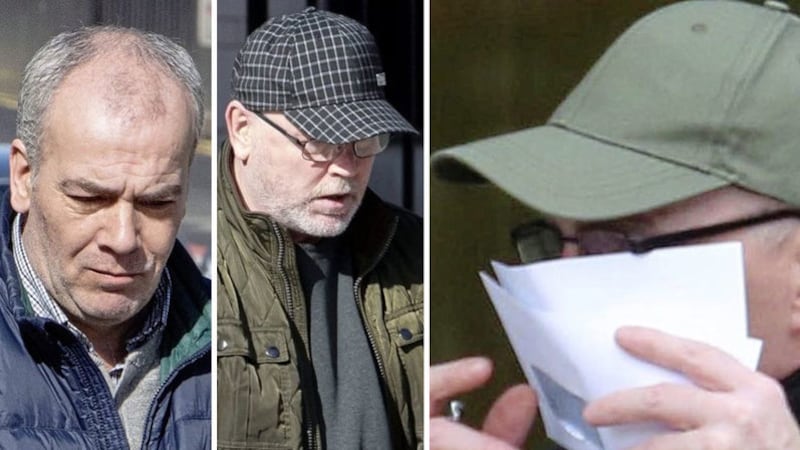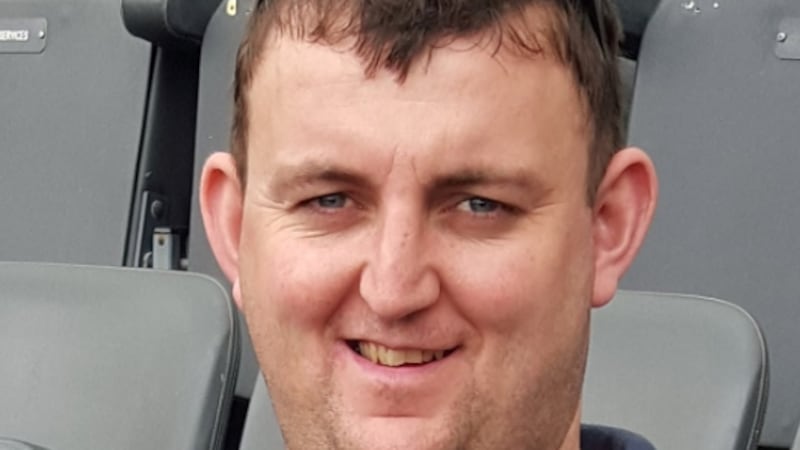AN MI5 agent has denied suggestions he deliberately destroyed evidence in the trial of three men arising from a dissident republican gun attack on police.
Colin Duffy (51), Henry Fitzsimons (50) and 57-year-old Alex McCrory deny charges of preparing and directing terrorism and membership or professing to be members of the IRA.
Fitzsimons and McCrory also deny attempting to murder police and possessing the two AK47 assault rifles and ammunition used in the north Belfast gun attack.
A three-vehicle police convoy came under attack as they travelled along the Crumlin Road on Decmeber 5 2013.
Belfast Crown Court previously heard that in the wake of the attack security forces mounted covert surveillance operations in Lurgan, Co Armagh.
'Operation Contraction' related to covert audio recordings in Demesne Park while 'Operation Succinctness' involved video of the scene.
A third operation, codenamed 'Idealistic,' related to a second video at the entrance of Forest Glade in the town.
An MI5 technical operative - given the cipher (PIN) 9281 - took the witness stand for a second day yesterday, screened from the public and press by a blue curtain and guarded over by an armed, plain-clothed police officer.
He was only visible to lawyers for the defence and prosecution and trial judge Mr Justice O'Hara, who is sitting without a jury in the 'Diplock' case.
The court previously heard that 9281 had deployed, retrieved and downloaded the audio recording onto MI5's mainframe computer system.
During cross-examination, a defence QC for Alex McCrory asked: "What are your qualifications for this post?''
He replied: "My Lord, I am not sure I can answer that question on the grounds of national security.''
Probed further about his expertise, the witness said his qualifications, although not at degree level, related to "technical areas' 'and would involve "cyber security''.
Asked if kept a notebook or any record of "this operation that could be used as evidence in court'', 9281 replied "No''.
He was further asked if it was a coincidence that other MI5 officers in the case did not use notebooks in the course of the undercover operation.
The witness answered: "I can't comment for other officers. I didn't use one.''
The lawyer put it to him: "Can I suggest to you that that it is the policy and procedure of the Security Services to shield your conduct from the scrutiny of this court.''
He replied: "I can't comment on the policies and procedures'."
The lawyer continued: "These policies and procedures are designed to insulate your conduct from scrutiny by this court and that you deliberately destroyed evidence in this case.''
9281 replied: "I didn't destroy any evidence in this case.''
During earlier cross-examination by a defence QC for Colin Duffy, the MI5 agent confirmed that he finished downloading audio material from a USB stick from the covert listening devices at 6.30am on December 8 2013.
Asked at what time he started to download the material, 9281 replied: "I can't answer that on the grounds of national security.''
At this point Mr Justice O'Hara interjected, saying to the witness that "you can tell us that you finished at 6.30am but you can't tell us when you started on the grounds of national security.''
The witness agreed, saying that was for a number of reasons which included the "timing of the deployment'' of the audio devices.
The defence lawyer put it to 9281 that it appeared from a computerised log print-out of December 8 2013, that someone else was downlowding the same audio material between 4.40 am and and 5.52 am before a virus alert went live at 5.57am.
The witness answered: "My Lord, the device never left my possession,'' adding that if they were not in his possession they would have been "stored in my secure locker''.
At hearing.







